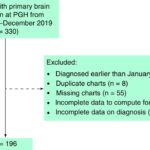Kidney cancer, while a serious health concern, can often be effectively treated, especially when detected early. For individuals at average risk, routine screening isn’t typically recommended. However, understanding the methods of early diagnosis and recognizing risk factors is crucial for proactive health management. This article will explore how kidney cancer is detected early, focusing on both average and high-risk individuals.
Kidney Cancer Early Diagnosis in People at Average Risk
For those with an average risk of developing kidney cancer, there are no standard screening guidelines in place. This is primarily because the potential benefits of widespread screening may not outweigh the downsides, such as cost and the anxiety associated with false positives. However, certain tests can incidentally lead to an early kidney cancer diagnosis.
One common test that might hint at kidney issues is a urinalysis, a routine urine test. Often included in general health check-ups, urinalysis can detect microscopic blood in the urine. This finding, known as hematuria, can be an early sign of kidney cancer. However, it’s important to note that blood in urine is not specific to kidney cancer. Urinary tract infections, bladder infections, bladder cancer, and benign kidney conditions like kidney stones can also cause hematuria. Furthermore, some kidney cancers may not cause visible blood in the urine until they are more advanced.
Imaging tests play a significant role in detecting kidney abnormalities. Computed tomography (CT) scans and magnetic resonance imaging (MRI) are powerful tools capable of identifying even small kidney tumors. Ultrasound, a less expensive option, can also detect some early-stage kidney cancers. Despite their effectiveness, these imaging tests are not recommended for routine screening in average-risk individuals due to factors like cost, time consumption, and the possibility of inconclusive results.
A key challenge with imaging tests is differentiating between benign tumors and cancerous growths. This uncertainty can lead to further investigations, such as biopsies, which can be invasive and cause anxiety, even when cancer is ultimately ruled out.
Interestingly, a significant number of kidney cancers are discovered incidentally. These “accidental findings” occur when imaging tests, like CT scans or ultrasounds, are performed for unrelated medical reasons, such as abdominal pain or injury. The good news is that these incidentally discovered kidney cancers are often in their early stages and haven’t yet caused symptoms. As a result, the survival rate for such cases is remarkably high, emphasizing the favorable outcomes associated with early kidney cancer diagnosis.
Kidney Cancer Early Diagnosis for People at Increased Risk
Individuals with certain inherited conditions face a higher risk of developing kidney cancer. These genetic syndromes predispose individuals to various cancers, including kidney cancer. Examples of such conditions include:
- von Hippel-Lindau disease
- Hereditary papillary renal carcinoma
- Hereditary leiomyomatosis and renal cell carcinoma
- Birt-Hogg-Dubé syndrome
- Paraganglioma-pheochromocytoma syndromes
- BAP1 tumor predisposition syndrome
- Tuberous sclerosis
For people with these inherited conditions, doctors often recommend regular screening protocols. These typically involve routine physical examinations combined with imaging tests such as CT scans, MRI, or ultrasound. Screening usually commences at a young age to detect kidney tumors and potentially other associated tumors early. Kidney cancers detected early in high-risk individuals through these methods have a high chance of being cured.
Additionally, individuals with kidney diseases undergoing long-term dialysis are also at an elevated risk of kidney cancer. Some doctors recommend regular kidney cancer screening for these patients as well.
The Role of Genetic Counseling and Testing in Kidney Cancer Risk Assessment
A crucial aspect of understanding kidney cancer risk involves family history. If you have blood relatives who have been diagnosed with kidney cancer, especially at a young age, or if there’s a family history of inherited conditions linked to kidney cancer like von Hippel-Lindau disease, it’s important to inform your doctor. They may recommend genetic counseling and testing.
Genetic counseling is a process that involves discussing your family history and personal risk factors with a genetic counselor. They can help you understand the potential benefits and limitations of genetic testing. Genetic tests for kidney cancer risk don’t directly detect cancer. Instead, they analyze your genes to identify mutations associated with inherited conditions that increase cancer risk. It’s vital to understand that having a gene mutation linked to these conditions increases your risk but doesn’t guarantee you will develop kidney cancer.
Before undergoing genetic testing, it’s highly recommended to consult with a genetic counselor. They will explain what the tests can and cannot reveal, how the tests are performed, and the implications of the results for you and your family. This informed decision-making process is essential for navigating the complexities of genetic risk assessment.
In conclusion, while routine kidney cancer screening isn’t advised for the general population, being aware of early detection methods and understanding your individual risk factors is paramount. For those at average risk, incidental findings during tests for other conditions often lead to early diagnosis and favorable outcomes. For individuals with increased risk due to inherited conditions or kidney disease, regular screening is often recommended. Discussing your family history and risk factors with your doctor is the first step towards proactive kidney cancer awareness and early diagnosis.
